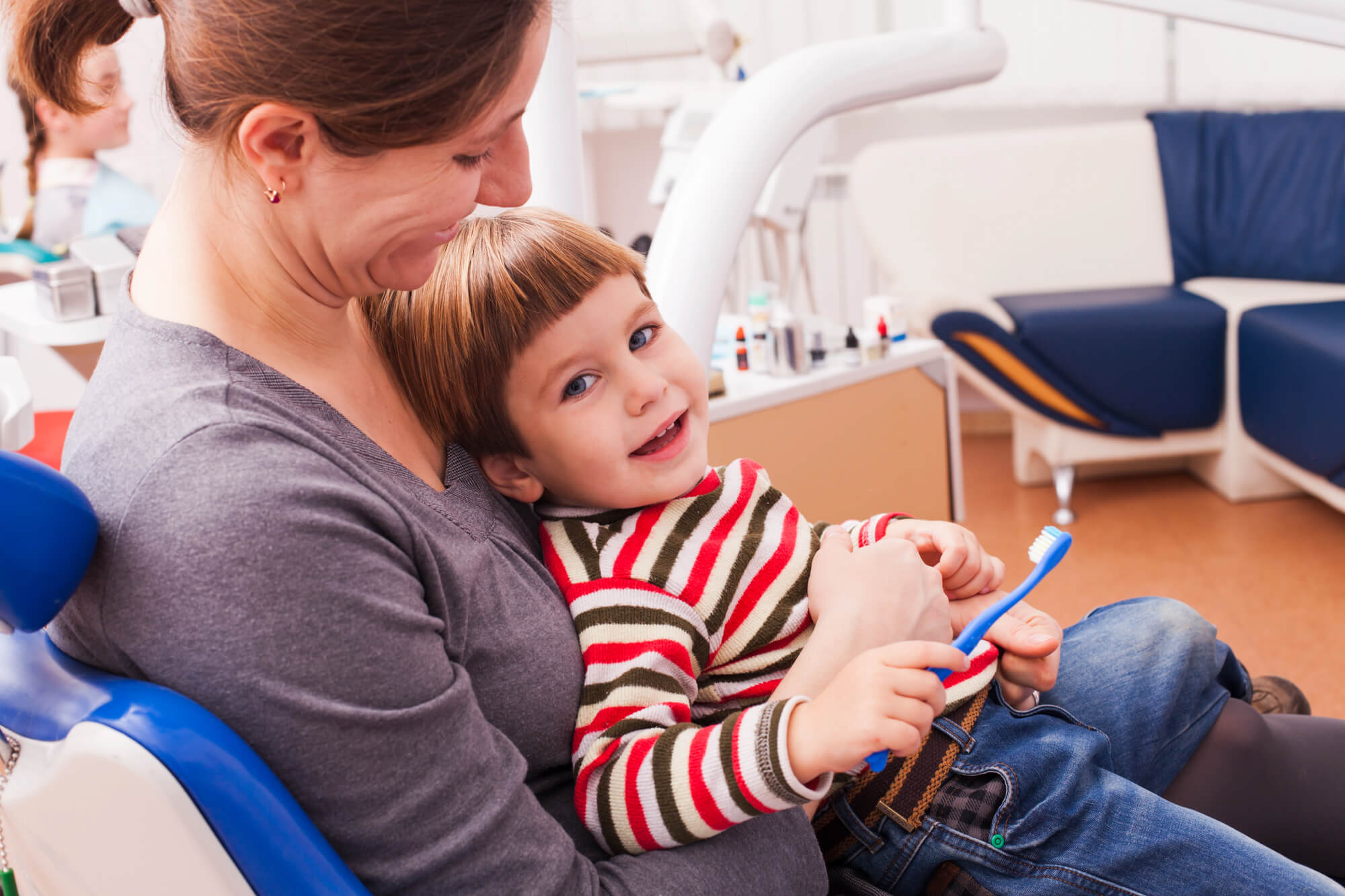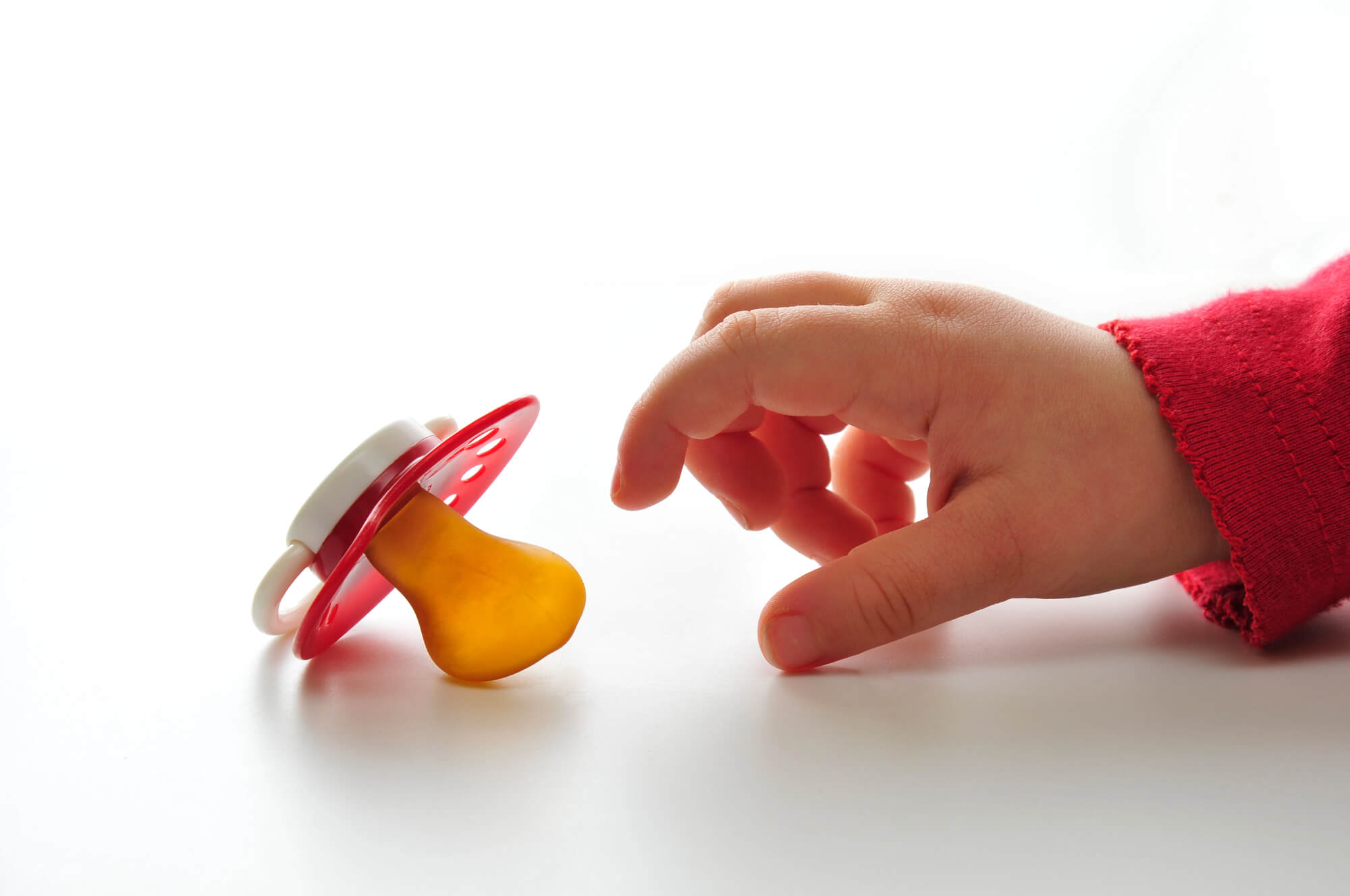For years, the image of a baby came with a pacifier in their mouths, calming them down between meals. However, simply because something has been done a certain way for a long time doesn’t mean it’s a good practice. Your Smyrna pediatric dentistry professional advises avoiding overusing this object, as it can damage their teeth in the long run.
Having a foreign object in your baby's mouth 24/7 can cause changes in the structure of their mouth, affecting their bite alignment and leading to dental-related problems in the future, like crooked or shifted teeth and jaw pain. This is to help you understand the risks of pacifier use and how much is too much.

Pacifier Mouth: What Is It and What Are Its Risks?
Parents have relied on newborn pacifiers to calm their kids for a long time. These silicone or plastic objects are given to an infant to suck on so that they can self-soothe and relax.
However, some experts say pacifiers aren’t a good idea because they cause pacifier teeth.
The term "pacifier teeth" describes a disorder brought on by extended pacifier use. A baby's teeth continue to grow and develop throughout their childhood, and anything kept in a baby's mouth for prolonged periods can negatively affect their oral and dental development.
Some of the issues caused by the overuse of pacifiers include:
- Crooked or crowded teeth
- Jaw misalignment
- Problems with biting
- Protrusion of the tongue
- Changes in the roof of the mouth
- Change in the position of teeth
Types of Dental Issues a Pacifier Can Cause
Children usually have oral problems because they have been using a pacifier for too long. The two main types of issues pacifier use can cause are:
Misaligned Bites
A misaligned bite is among the most well-known dangers of excessive pacifier use. This can include open bites, cross bites, and other malocclusions.
To adapt to the constant presence of a foreign object, older children still using pacifiers may experience tooth movement and even a change in the shape of the roof of their mouth.
For instance, a 2001 study discovered that almost 71 percent of kids who kept sucking their thumbs or using a pacifier after the age of four had malocclusion. On the other hand, 14 percent of kids who quit using pacifiers or thumbsucking by the age of 24 months displayed symptoms of malocclusion.
Gingival Recession and Cavities
Additionally, pacifier use has been connected to pediatric cavities, gingival recession, or gum loss. Parents may also dip them in sweet substances to encourage their children to accept pacifiers at a young age, which can result in these oral conditions.
This practice exposes their teeth and gums to sugar, making them more prone to plaque buildup and cavities.

Preventing Pacifier Teeth
As long as you maintain good hygiene and know when it is time to wean your child off of pacifiers, there is no reason to be afraid of using them. Some tips to encourage safe pacifier use include:
- Children should not share pacifiers: They may be exposed to bacteria that can lead to cavities or other infections.
- Do not dip your baby's pacifier in something sweet: Even if you are tempted to do so to promote pacifier adoption, cavities may eventually form if gums or the first set of pearly whites are exposed to all that sugar.
- Get the right size: Pacifiers come in sizes depending on your baby’s age range. If they’re using a pacifier that’s too large for them, it may cause shifting. Similarly, your baby may choke if the pacifier shield is too small, and they can put the entire pacifier in their mouth.
- Consider orthodontic pacifiers: Because these pacifiers are flatter and do not have the traditional round nipple shape, your baby's jaws will be properly aligned when they are sucking.
The Right Age to Take the Pacifier Away
There’s no right answer to when to avoid pacifier use. However, continued use can promote oral-related problems as early as 24 months of age.
According to more recent statements from the American Academy of Pediatrics, using a pacifier after age two may result in problems with baby teeth. Still, these problems are frequently reversible if your child stops sucking before their adult teeth erupt. The American Academy of Pediatric Dentistry recommends that pacifier use be discontinued after the age of three.
Most pediatric dentists agree that a pacifier should be removed from your child by age 4.
Treatment for Pacifier Teeth
Sometimes, pacifier teeth can be fixed independently, as your baby's mouth is still growing and constantly changing. In others, treatment is necessary.
However, the degree to which a child's dental problems are permanent is directly impacted by when they are weaned off a pacifier. For instance, problems identified before 24 months of age can frequently be resolved within 6 months of the child's weaning.
However, children older than 24 months with pacifier teeth may require dental interventions down the line. In these cases, orthodontic treatment is often the only solution. This is particularly true for kids four and up, as this is when adult teeth erupt beneath baby teeth.
The Risks of Thumb-Sucking
Thumb-sucking is another harmful practice for your baby’s healthy smile. Similarly to pacifier use, vigorous thumb-sucking can foster tooth movement and cause bite misalignments, which is why it’s as problematic as a pacifier.
Beyond four years old, your kid should stop thumb-sucking to prevent the same dental issues as those who use pacifiers.

Treat Your Baby’s Pacifier Teeth with Our Smyrna Pediatric Dentistry
Every parent wants their baby to be happy and relaxed, and pacifiers are often a great aid in achieving that. However, overexposure to these helpful objects can have the opposite effect: it may damage your baby’s smile, making braces or clear aligners when they are a little older the only plausible solution to reverting the damage.
Early visits to a pediatric dentist at Happy Harpeth & Associates are fundamental to preventing this. We’ll identify any potential issues in their pacifier use, provide advice, and advise on the need for orthodontics if needed. Reach out to make an appointment!





